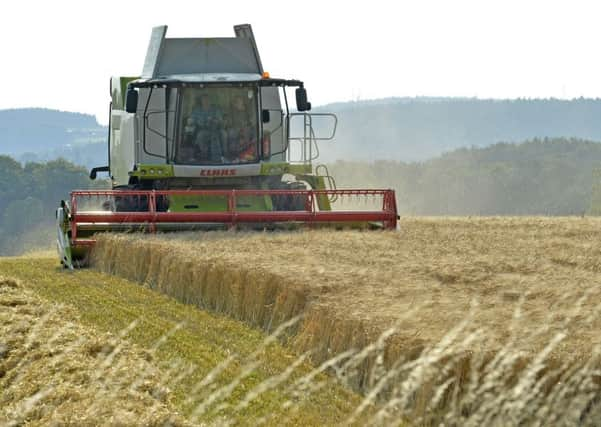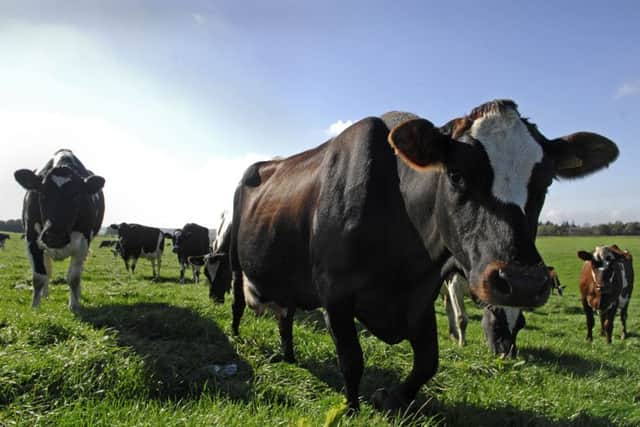Public's view of farming is far from its tough reality, study finds


It found that one in four UK adults like the idea of giving up their day job and working on a farm, with a farmer’s yearly income guessed, on average, to be £46,801.
Almost one in ten - nine per cent - estimated a farmer’s annual income to be at least £75,000.
Advertisement
Hide AdAdvertisement
Hide AdYet the reality is, as government figures show, that average farm incomes fell below £20,000 in 2015, to their lowest since 2007.


Only 32 per cent of people who responded to the Fund’s survey said their knowledge of the countryside and farming was either “poor” or “very poor”, however 95 per cent of farmers said they did not think the public understands the everyday challenges that farmers face.
Lord Curry, chairman of The Prince’s Countryside Fund, said: “The true reality of what it takes to be a farmer is not widely understood. Many of us envisage the picturesque countryside lifestyle with a comfortable living. Unfortunately, for one of the oldest professions which contributes over £108bn a year to the economy, the reality can be very different.”
In the study, half of farmers said they no longer make a living from farming alone.
Advertisement
Hide AdAdvertisement
Hide AdMost challenges facing family-run farms are financial. Just over a quarter of farmers cited poor commodity prices, almost a fifth identified the possible loss of direct support payments post-Brexit and 15 per cent said their costs were too high.


The report states that falling farmgate prices have forced many farmers to borrow money and that farm borrowing has almost doubled in the past decade.
Two-thirds of UK dairy farms have closed since 1995 and many that remain rely on credit in order to survive.
Lord Curry said: “Farmers work long hard hours, receive modest pay for their efforts, have financial instability and are now faced with growing uncertainty.
Advertisement
Hide AdAdvertisement
Hide Ad“The farming industry needs support from the British public through the buying of home produced food to help maintain its viability for the future.”


Of those surveyed, half said they were willing to pay more for food to support local farmers, but just 15 per cent said UK production was the main motivator when buying food, compared to 42 per cent who said it was price.
The National Farmers’ Union claimed more people do want to buy more domestically produced food.
Andrew Clark, the union’s policy director, said: “There are very real pressures within the farming sector as highlighted by this research. However, we remain very fortunate to have the support of the public, with people telling us time and time again they want to buy more food produced from British farms.
Advertisement
Hide AdAdvertisement
Hide Ad“Our nation’s farmers are rightly proud of the standards to which they produce our food but they are also rightly concerned about the future of their sector post-Brexit with the threat of imported food, potentially produced to lower standards of animal welfare, flooding UK markets.”


Mr Clark added: “We recognise there are many issues affecting the buying decisions people make; and price is undoubtedly one of them. We simply urge those wanting to back British farming to look out for the Red Tractor logo when buying their grocery shop and support British farmers by asking is their food British wherever and whenever they eat.”